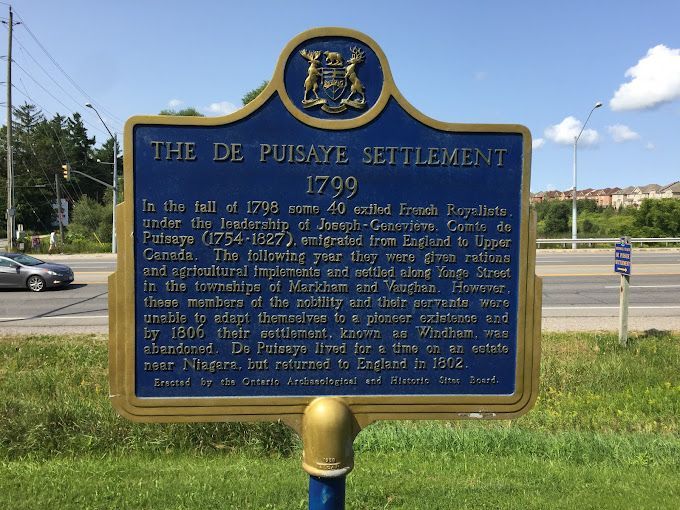Notary Services Jefferson 24/7
Notary Public in Jefferson
Richmond Hill
Welcome to Notary Services Jefferson, your trusted source for professional notary services in the heart of Richmond Hill's Jefferson neighborhood. Our experienced team of notary public professionals is dedicated to serving the diverse needs of our community.
Our mission is to provide you with comprehensive and reliable notary services, ensuring that your important documents are legally valid and securely processed. With a deep understanding of the importance of accurate notarization, we are here to guide you through the often complex world of legal documents.
Notary Services Jefferson, proudly powered by Online Notary, provides a comprehensive suite of notarization solutions tailored to your preferences. We ensure you have access to the most up-to-date and secure online notarization services and in-person or mobile (On-The-Go) options.
Our pride is rooted in our meticulous attention to detail, integrity, and a dedicated commitment to excellence. Whether you require notarization for real estate transactions, wills, powers of attorney, or any other legal matter, our team of experts is here to guide you every step of the way.
Our Online Notary team recognizes the unique cultural diversity of the Jefferson community, and that your time is valuable. We are pleased to offer our services and ensure that our assistance is accessible to all members of our vibrant community. That's why we strive for efficiency and accuracy in every notarization we perform. Your satisfaction and peace of mind are our top priorities.
Send us a message
Tell us your details and we'll get right back to you.
Contact Us
Affordable Notary Services Jefferson
Notary Public Service Areas
We offer notary services throughout Richmond Hill, serving various locations within the City.
13390 Yonge St, Richmond Hill, ON L4E 2P6
Power of Attorney
A Power of Attorney (POA) is a legal document that grants one person (the "agent" or "attorney-in-fact") the authority to make decisions and take actions on behalf of another person (the "principal"). The person giving the authority (the principal) delegates certain powers to the appointed agent, allowing them to act in the principal's place for specific matters or in a broader context.
There are several types of powers of attorney, including:
General Power of Attorney: This grants the agent broad authority to make financial and legal decisions on behalf of the principal. It is often used for matters such as managing finances, signing contracts, and conducting business transactions. A general power of attorney is typically valid until the principal revokes it, becomes incapacitated or passes away.
Limited (or Specific) Power of Attorney: This grants the agent authority for a specific and limited purpose or period. For example, a limited power of attorney might be used to allow someone to sell a property or make medical decisions during a temporary absence of the principal.
Durable Power of Attorney: This remains in effect even if the principal becomes mentally incapacitated or unable to make decisions. It is often used for long-term planning to ensure someone can manage the principal's affairs if they become incapacitated.
Medical Power of Attorney (Healthcare Proxy): This specifically grants an agent the authority to make healthcare decisions on behalf of the principal if they are unable to do so themselves. It's used to ensure the principal's medical wishes are followed in cases of illness or incapacity.
Springing Power of Attorney: This type "springs" into effect upon a specific triggering event, such as the principal becoming incapacitated. It is often used in conjunction with a durable power of attorney.
Powers of attorney are an important legal tool that enables individuals to plan for potential incapacity, manage their affairs more effectively, and assign trusted agents with the authority to act on their behalf when necessary. One must carefully consider the powers being granted and choose an agent who can be trusted to act in their best interest.
Divorce or Separation Agreement
A Divorce/Separation Agreement, often referred to as a Separation Agreement or Marital Settlement Agreement, is a legally binding document that outlines the terms and conditions agreed upon by a married couple when they decide to separate or divorce. This agreement serves as a comprehensive guide for how the couple will handle various aspects of their separation or divorce, including financial, property, and child-related matters. Here are the key components typically included in a Divorce/Separation Agreement:
Division of Assets and Debts: The agreement specifies how the couple's property, assets, and debts will be divided between them. This can include real estate, bank accounts, investments, personal belongings, and outstanding loans.
Child Custody and Visitation: If the couple has children, the agreement outlines custody arrangements, including physical and legal custody. It also addresses visitation schedules, holiday arrangements, and decision-making responsibilities regarding the children's upbringing.
Child Support: The agreement defines the financial support one spouse will provide to the other for the care and upbringing of their children. Child support is typically based on the parents' incomes and the children's needs.
Spousal Support (Alimony): If applicable, the agreement may specify whether one spouse will provide financial support to the other after separation or divorce. The terms for spousal support, including the amount and duration, are outlined.
Healthcare and Insurance: It addresses how health insurance and medical expenses for both spouses and children will be handled after separation or divorce.
Division of Retirement Accounts: If either spouse has retirement savings, the agreement may detail how these accounts will be divided or shared.
Tax Considerations: The agreement may include provisions for filing taxes, claiming deductions, and addressing any tax-related issues that may arise from the separation or divorce.
Legal and Financial Obligations: It outlines each spouse's responsibilities for their own financial affairs and legal matters, such as updating wills and designating beneficiaries.
Dispute Resolution: The agreement may include a process for resolving disputes that may arise in the future, such as mediation or arbitration, instead of going to court.
A Divorce/Separation Agreement is typically negotiated and agreed upon by both spouses with the assistance of their respective attorneys or through mediation. Once both parties have reached a mutually acceptable agreement, it is generally submitted to the court for approval. Once approved, it becomes a legally binding contract that guides the actions and responsibilities of both spouses during and after the separation or divorce. Having a well-drafted agreement can help minimize conflicts and provide clarity during what can be a challenging time for all parties involved.
Certified True Copies
Certified Copies of Original Documents Include (In-Person Notarization Only):
- Government-issued photo identification documents, such as passports, driver's licenses, citizenship cards, and permanent resident cards.
- Government Forms.
- Vital records like marriage certificates, birth certificates, divorce certificates, and death certificates.
Additionally, we offer certification for:
- Court orders.
- Diplomas and degrees.
- Academic transcripts.
- Contracts and commercial agreements.
- Letters and notes.
- Powers of Attorney.
- Probated Wills.
Our certification services are designed to provide you with legally verified copies of your important documents, ensuring their authenticity and accuracy for various legal and administrative purposes. *Please be aware that this service requires in-person notarization.
FAQs
Got a question about our Notary Public Services? We’re here to help.
Jefferson Community
Places to Visit in the Jefferson Neighborhood
History
In the 1840s, the neighborhood we now know as Jefferson in Richmond Hill began to take form. The Jefferson family, immigrants from Yorkshire, England in the 1830s, played a pivotal role in shaping its development. The name "Jefferson" likely originated from William Thomas Jefferson, who established a general store on their property at Lot 59, Concession 1 (west of Yonge Street).
The early 1840s saw the construction of the Jefferson Common School, a one-room schoolhouse, making it one of Richmond Hill's earliest educational institutions. In 1882, the Jefferson Post Office was established in the neighborhood, further solidifying its identity.
Furthermore, Jefferson attracted some of its earliest settlers from a unique background. French Royalists, seeking refuge from the tumultuous French Revolution, found their way to this community. Led by Joseph-Geneviève, Compte de Puisaye, these aristocrats, collectively referred to as the Windham settlers, formed a settlement in the area. However, due to the challenging living conditions, many of the royalists eventually returned to France after a few years. Nevertheless, a handful of Windham families persevered and left their lasting legacy in Richmond Hill. Today, an Ontario Heritage plaque commemorating the Windham settlement can be visited at 12025-12045 Yonge Street, just north of Jefferson Sideroad.












